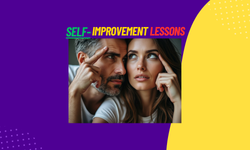There’s a quiet thrill in hearing someone say, “You’re right to suspect that.” It’s like a puzzle piece snapping into place, a gut feeling suddenly given a voice. We all have those nagging suspicions—about a friend’s loyalty, a job’s stability, or even the world’s hidden gears—and when someone confirms them, we’re hooked. These validators don’t just agree with us; they ignite a bond so fierce we’d do anything to keep them close.
Consider Mark, a guy who’d long suspected his company was cutting corners. Late-night chats with colleagues never eased the itch—he felt crazy for doubting the “official story.” Then a new coworker, Lisa, leaned in one day and whispered, “You’re not wrong; I’ve seen the numbers.” That single sentence flipped a switch. Mark didn’t just feel validated; he felt seen. Soon, he was sharing tips, covering her shifts, fiercely loyal to the one who turned his hunch into truth.
What’s at play here? It’s a cocktail of psychology and persuasion. Suspicion is a restless beast—it gnaws at us, begging for proof. When someone steps in to confirm it, they’re not just nodding along; they’re handing us clarity. Research on cognitive bias shows we crave confirmation—it soothes the dissonance between what we feel and what we’re told. These suspicion-whisperers don’t just echo us; they sharpen our instincts, and that’s a gift we’ll repay with devotion.
This can spark self-improvement, too. Validation isn’t always about wallowing—it can push us forward. Mark didn’t just stew in his suspicions; Lisa’s words spurred him to dig deeper, learn more, and eventually switch to a company that aligned with his values. When someone confirms what we’ve sensed, it’s a green light to trust ourselves, to act. That’s why we’ll go all-in for them—they turn our quiet doubts into loud momentum.
But there’s a catch. This pull can backfire. Some wield persuasion like a puppeteer, feeding suspicions to manipulate rather than liberate. Think of the conspiracy-peddler who says, “You’re right, they’re all lying,” to trap you in their orbit. The line between empowerment and exploitation is thin—it’s the difference between “I see what you see” and “Only I can show you the truth.”
Here’s the bottom line: we’re wired to adore those who confirm our suspicions. They’re the mirrors to our instincts, the voices that say, “You’re not alone in this.” We’ll move mountains for them because they make us feel sane, sharp, alive. But the real magic happens when their validation fuels growth, not just vindication. So, next time someone nods at your hunch, ask: Are they lighting your fire—or just fanning the flames? Either way, you’ll probably do anything to find out.
Thanks for reading. I hope you find this helpful. Kindly share it with your family and friends. 🙂




